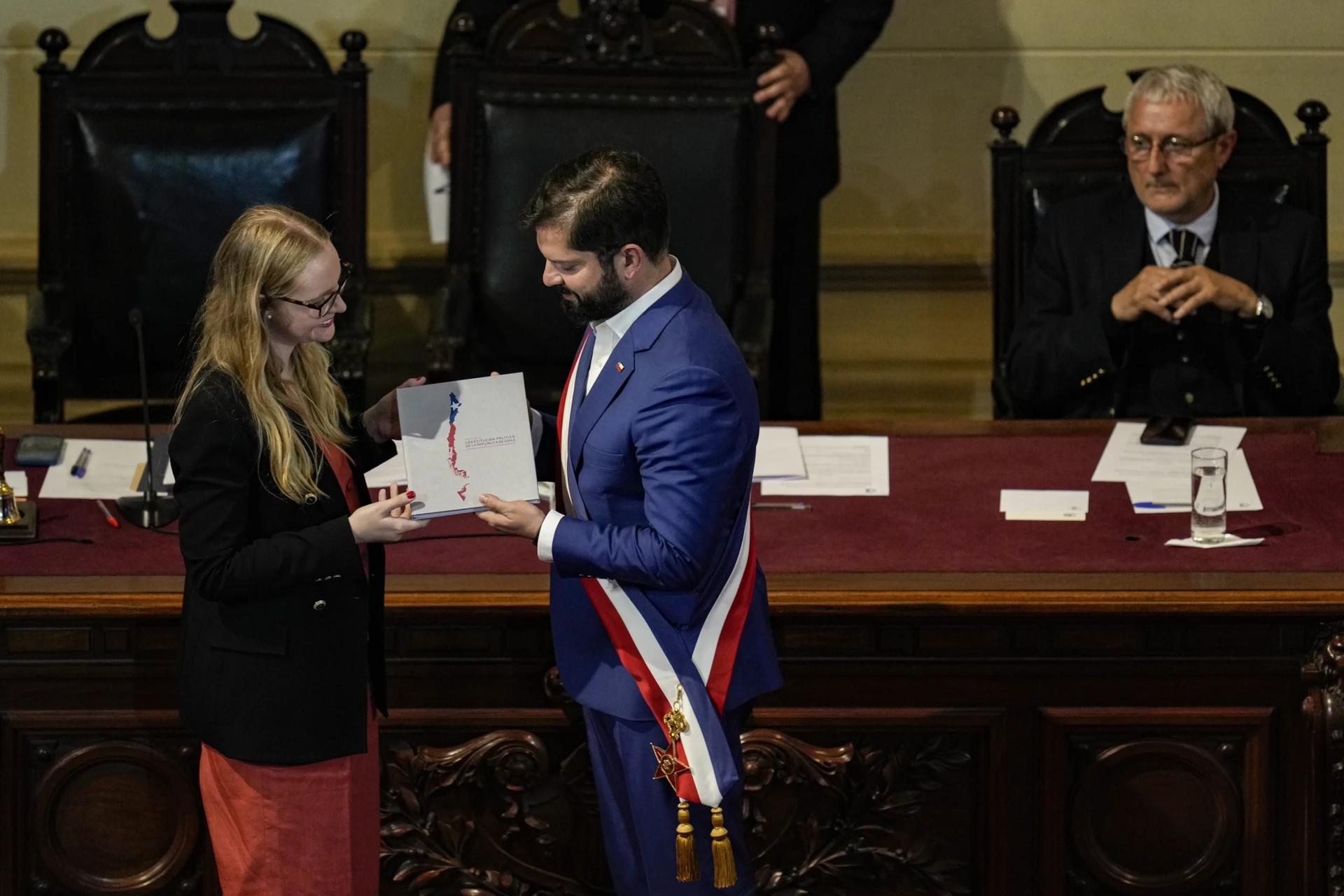SÃO PAULO, Brazil – Bishops in Chile have condemned a plan by President Gabriel Boric’s to endorse a bill to depenalize euthanasia and to pass another bill regulating legal abortion in the South American country.
Boric announced those projects on Jun. 1, during the annual presidential speech in Congress, which is similar to the U.S. State of the Union address.
“I am convinced of the need to have a democratic debate on sexual and reproductive rights. That is why, during the second half of this year, we will introduce a bill on legal abortion. (…) The women of Chile deserve their right to decide,” Boric declared.
He recalled in 2017, former President Michelle Bachelet promulgated a law allowing women to legally perform abortion under three conditions: If the baby is the result of rape; if the baby puts the mother’s life in danger; or if the baby would not live out of the mother’s womb.
“Seven years have passed and, with that prudent evaluation time, we have decided to improve the law’s application. Thus, we have submitted a new regulation for this law to the Comptroller’s Office,” he explained, adding that his goal is to “guarantee that the population knows its options, to ensure a right that is established by law, and that personal conscientious objection does not hinder abortion on those three grounds.”
Concerning euthanasia, Boric affirmed that the government owes a response to those who suffer from “incurable terminal illnesses that entail an advanced and irreversible decline in their abilities, with persistent and intolerable physical suffering that cannot be alleviated, which the patient considers unacceptable.”
“I will put urgency to and we will promote the euthanasia and palliative care bill that is currently in the Senate, because passing this law is an act of empathy, responsibility and respect,” Boric said.
The president mentioned the case of Susana Moreira, a young woman who suffers from facioscapulohumeral muscular dystrophy (FSHD), a genetic muscle disorder that impacts the muscles of the face, shoulder blades, and upper arms.
Moreira sent a letter to Boric last year asking him to allow her to receive euthanasia. She fears being unable to breathe in the future and wishes to have the choice to undergo euthanasia before something like that happens to her.
He explained to her that it’s not up to him to take that measure, but made a commitment to make a bill on euthanasia that has been stuck in the Senate since 2022 an urgent matter.
In its letter on June 2, the bishops’ conference said it “deeply laments such initiatives, which attack the sacred and inviolable value of human life.”
The bishops said “there are no alleged sexual and reproductive rights of some at the expense of attempting the life of others.”
“Concerning euthanasia, we affirm (…) that human life, including in painful conditions, carries a dignity that must be always respected, so under any circumstances one can eliminate his or her life or the life of others under the weight of suffering,” the document read.
The letter concludes with an exhortation from the bishops against the relativization of the value of human life. It linked the defense of human rights – something that was advocated by Boric – to the protection of life from conception to natural death.
According to Bishop Juan Ignacio González of the Diocese of San Bernardo, many Chileans have been expressing their dissatisfaction with the two bills. A group of Evangelical organizations has also released a message against euthanasia and abortion.
“Unfortunately, many people have a firmer stance against abortion than euthanasia. But both of them represent serious attacks on central principles for us Christians,” González told Crux.
He said that Chile has had great progress when it comes to palliative care. Every citizen has the right to receive it for free if needed.
“There’s a list of more than 100 diseases that require palliative care. If a person does not have access to it, the government must ensure it,” González said.
When it comes to abortion, González fears that imposing restrictions to conscientious objection may result in forcing every healthcare institution to perform abortions.
“There’s a certain popular unity now in Chile. But those measures presented by Boric may create divides. Nobody knows why he decided to do that now,” he said.
González recalled that some countries in the region, like Ecuador and Peru, have recently depenalized euthanasia, a movement that may indicate that there’s some level of international coordination among those who want to promote abortion and euthanasia.
“As Pope Francis says, life became disposable. If the one who is coming is a problem for me, and the one who is not going away is also creating trouble, I may wish to discard their lives,” González added.












